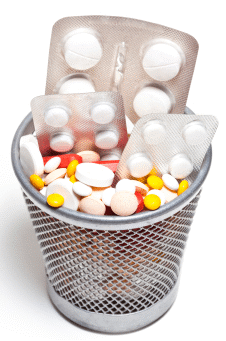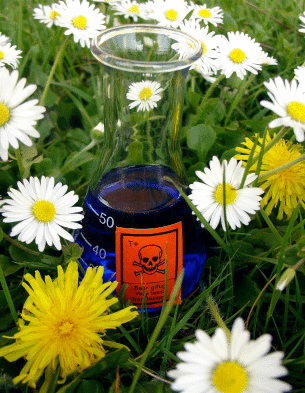On-Demand Webinars
PHARMACEUTICALS & ANTIBIOTICS: Part 1
Pharmaceuticals and Personal Care Products:
Occurence, Fate, Transport and Remediation
 The Contaminants of Concern series is designed to provide the latest information on important contaminants that the environmental industry deals with. Emerging contaminants are the contaminants of concern of the future. Pharmaceuticals, personal care products (PCP), and antibiotics are an important suite in the emerging contaminants mix. It's estimated that 41 million Americans consume drinking water containing pharmaceuticals. The Contaminants of Concern series is designed to provide the latest information on important contaminants that the environmental industry deals with. Emerging contaminants are the contaminants of concern of the future. Pharmaceuticals, personal care products (PCP), and antibiotics are an important suite in the emerging contaminants mix. It's estimated that 41 million Americans consume drinking water containing pharmaceuticals.
This webinar provides important background on the kinds of pharmaceuticals and PCP found in groundwater, their occurrence and concentrations in the environment, methods for sampling and analysis, research on factors affecting pharmaceuticals and PCP biodegradation, and a case study of the importance of identifying contamination sources in a karst system as a first step in stopping pharmaceutical and PCP contamination.
Some of the types of drugs found in groundwater include pharmaceuticals (human and animal prescription and over-the-counter drugs), illicit drugs , and PCP such as DEET, Triclosan (antibacterial, antifungal ingredient), shampoos, etc. Many common drugs, such as antibiotics, musk fragrances, antihistamines, and antiepileptic drugs are hard to biodegrade.
 This webinar examines how pharmaceuticals and PCP enter into the environment, commonly as waste disposed in sewers, septic systems, and landfills. Most septic systems and waste water treatment plants are not equipped to handle pharmaceuticals and personal care products resulting in discharge to groundwater, local rivers and lakes, etc. This webinar looks at the concentrations at which pharmaceuticals and PCP are found in groundwater and surface water, and discusses the effects pharmaceuticals and PCP may have on non-target organisms even at trace concentrations. This webinar examines how pharmaceuticals and PCP enter into the environment, commonly as waste disposed in sewers, septic systems, and landfills. Most septic systems and waste water treatment plants are not equipped to handle pharmaceuticals and personal care products resulting in discharge to groundwater, local rivers and lakes, etc. This webinar looks at the concentrations at which pharmaceuticals and PCP are found in groundwater and surface water, and discusses the effects pharmaceuticals and PCP may have on non-target organisms even at trace concentrations.
Dealing with pharmaceuticals and PCP in the environment relies on appropriate sampling and analysis, and this webinar discusses appropriate methods.
The webinar concludes with a case study of the karst groundwater system in the Yucatan which shows the importance of identifying contaminant sources in the system as a first step in stopping pharmaceutical and PCP contamination.
Instructors Bio
Melissa Lenczewski, PhD, Associate Professor Geomicrobiology, Organic Geochemistry, Contaminant Hydrogeology at Northern Illinois University
 Melissa Lenczewski is an associate professor of geology and environmental geosciences at Northern Illinois University. Her main research areas are in contaminant hydrogeology and geomicrobiology. Her other research projects include the determination of the influence of microbial communities on the survivorship of trees in ultramafic soils (New Caledonia) and the spatial distribution of microbial communities relative to lithology, mineralogy, and contaminants.
Melissa Lenczewski is an associate professor of geology and environmental geosciences at Northern Illinois University. Her main research areas are in contaminant hydrogeology and geomicrobiology. Her other research projects include the determination of the influence of microbial communities on the survivorship of trees in ultramafic soils (New Caledonia) and the spatial distribution of microbial communities relative to lithology, mineralogy, and contaminants.
| Fee: |
299.00 USD Per Webinar
|
| Materials and Downloads: |
Session Slides (PDF)
Record of Attendance Form (PDF)
|
Number of
Participants: |
AS OF JUNE 1, 2020, WEBINARS ARE PRICED FOR INDIVIDUALS WORKING ALONE. Pricing is discounted for individual registrations for people working alone.
|
Continuing
Education
Certificates: |
$14.95 each. Official CEU certificates are available as an option. After successful completion of this webinar, a link will be provided to order a certificate.
|
| Access: |
On-demand, anytime 24/7. |
| Discounts: |
Buy 3 on-demand webinars, and get 3 on-demand webinars for free!
|
| Duration: |
90 minutes |
| PDH Earned: |
1.5 hours |
| |
|
| Instructor(s): |
Melissa Lenczewski, PhD |
|
Become A Member
It's Free, It's Easy and as a
Member you'll enjoy...
- Exclusive Videos
- Special Pricing
- And Much More
|
|
Join
|
Learn More
|
Association of Environmental
& Engineering Geologists
|